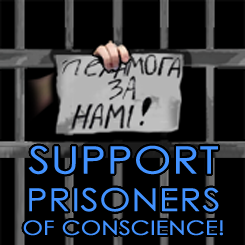Condoleezza Rice: it’s difficult to struggle for freedom in Belarus, but changes will come
US Secretary of State Condoleezza Rice spoke to RFE/RL staff in Prague and answered a number of questions during her visit to the Czech Republic.
– You named Belarus the last Europe’s dictatorship last year. Over the time you have been heading the Department of State, the US-Belarusian relations have reached the lowest mark in their history. These are economic sanctions, ban for the Belarusian governmental officials for entry to the US, absence of a US ambassador in Minsk, where only five diplomat work. The embassy is on the brink of shutting down. Why so wasn’t it closed down? Does retaining of diplomatic ties mean you hope for possible improving relations with the official Minsk? If so, in what way?
– I tell you clearly what has stopped shutting down of the embassy – I didn’t want the US flag to lower in Belarus. It stopped closing down of the embassy. I think, the US flag that still waving in Minsk is an important sign that the United States will support those who continue to struggle for freedom.
I know it is hard in Belarus. I know that Lukashenka’s regime is brutal. I know that sometimes this brutality towards his enemies, towards the opposition is effective. But, an interesting fact, Lukashenka didn’t receive 99 per cent of the votes at the last elections.
We will continue to cooperate with the opposition, with non-governmental organisations. I know these people. Other countries render assistance, too. The Lithuanians, I spoke some days ago, support the university where more and more of the Belarusians go to study to. The Polish people are very active. The Czechs here in Prague work actively for Belarus. I think, we can continue to bring pressure by the means you have mentioned.
I also think we can continue to work with non-governmental organisations to help them to be more organised and more effective. We also need assistance of the European Union. We work closely on the problems concerning Belarus.
Sometimes time is needed but sometimes it happens fast. Suddenly something begins to get under way, and changes are started.
You know, at the end of the Cold War I worked as an expert of Soviet affaires in the White House. I began to work with George Bush, father of the present president, in February 1989. Nobody could say in February 1989 there would be no Warsaw Pact, no Soviet power over the Eastern Europe, no Soviet Union in February 1991. One couldn’t dream about it at that time.
So, however hard it may be, I think what needs to be done – and you do it by your daily radio programs – is to help this hope and this light of freedom until it runs high. We know from the history of mankind – it will really run high! It is invincible! It is really rising and you keep it in those who listen to you every day.
If anyone of us faces despair, that the system exists, and there are leaders, rulers and dictators able to strangle freedom anyhow, then it will turn out that we leave alone those who continue to hope for the light, for freedom.
When I spoke with people living under tyranny, I try not to tell them: it will be a breakthrough tomorrow! It would be inveracious. But I try to tell them their hopes for freedom are not baseless. Because nobody knows. You continue to throw seeds, lay the foundation, so that when the time comes, there will be people who will be able to use it.
